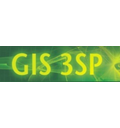Anxiety and Alcohol Use Disorders PMC

Data from a study of 53 patients who participated in alcohol treatment at a residential substance abuse program were consistent with this prediction (Kushner et al. 2005). Thus, among those 23 patients who had an anxiety disorder at baseline and remained abstinent after approximately 120 days, 61 percent no longer met criteria for an anxiety disorder at follow-up. Another study with 171 male veterans demonstrated that self-reported measures of temporary anxiety (i.e., state anxiety) decreased rapidly during inpatient alcohol treatment (Brown et al. 1991).
- In fact, drinking can change the chemistry of the brain in a way that actually makes anxiety worse.
- Alcohol doesn’t directly cause panic attacks, in the sense that those with panic disorder suffer from panic attacks with or without alcohol.
- Someone who frequently binge drinks or has more than eight drinks a week (female) or 15 drinks a week (male) could also be primed for having withdrawal symptoms.
- It might even lead to panic attacks if you are already prone to anxiety.
- Without treatment, people with panic disorder have a higher risk of suicidal ideation.
Alcohol support services
Administration of these methods for comorbid individuals is complex and may require modification of standard procedures to yield the greatest efficacy. It also is notable that the optimal sequence and timing of treatments remain undetermined even after decades of scientific inquiry. In light of the current evidence, the most practical approach to combining treatments is to weigh the benefits and drawbacks of each method and apply them judiciously. Caution also is suggested with the use of MAO-Is and TCAs for comorbid individuals. TCAs also should be used with caution among people with co-occurring AUDs and be prescribed only after other treatments have been ruled out because these medications can have an enhanced adverse-effect profile in this population. Moreover, the impaired judgment and impulsivity among persons with co-occurring alcohol use problems may increase the risks of taking an overdose of the medications that can result in toxicity and, potentially, suicidality.

Help for Mental Illnesses
The onset of symptoms related to social anxiety disorder and agoraphobia can be a trigger for some people to develop unhealthy relationships with alcohol. In some cases, a person who drinks alcohol to relieve feelings of anxiety might end up drinking more because they expect alcohol to provide a certain amount of relief from their anxiety symptoms. Remember that withdrawing from alcohol can also cause symptoms of anxiety. So, make sure you seek help from a doctor to manage or reduce the withdrawal effects of alcohol. The term “therapist” can apply to a range of professionals including social workers, mental health counselors, psychologists, professional counselors, marriage and family therapists, and psychoanalysts.
Co-occurring disorders: Anxiety and Alcoholism

Some people argue that drinking alcohol is a way of temporarily forgetting your worries or concerns. However, drinking excessively will only make these anxieties and worries worse. Whilst it’s not the type of alcohol that affects how anxious you might feel, the amount and frequency of alcohol you drink does affect your levels of anxiety. You might also start to feel claustrophobic, even if you are not in a tight space. You will also start to fear being in front of people or surrounded by a lot of people in crowds. You will start to fear going to certain places, seeing certain people or doing certain activities in fear of having a panic attack.
- Thus, previous research has suggested that parallel psychosocial treatments for anxiety and AUDs may be too demanding for clients, which can negatively influence treatment outcomes (,Randall et al. 2001).
- If you find a connection between drinking alcohol and feeling anxious you can take steps to reduce the amount you drink.
- If you have an anxiety disorder, alcohol misuse and withdrawal can make your symptoms worse.
- If you reach for alcohol in an effort to avoid experiencing a panic attack or feelings of anxiety, you can quickly become trapped in a debilitating cycle that becomes very difficult to break.
Thus, women are more likely than men to have both disorders, and the presence of anxiety disorders may exacerbate the course and severity of alcohol problems in women. If you have social anxiety or a social phobia, therapy may work best to reduce your levels of anxiety (combined with a medication such as sertraline, or Zoloft). Alcohol has an effect on brain chemistry – it can induce panic because of its effects on GABA, a chemical in the brain that normally has a relaxing effect. Small amounts of alcohol can stimulate GABA and cause feelings of relaxation, but heavy drinking can deplete GABA, causing increased tension and feelings of panic.14,15 Panic attacks can occur due to alcohol withdrawal.
Due to these side effects, you might find yourself feeling more anxious than ever. Unfortunately, the side effects of Buspar can make it incredibly hard for someone to avoid feeling anxious and stay sober. This is because depending on the severity of your alcohol addiction, you might need to withdraw from alcohol in stages so that you do not overwhelm your body, which might lead to you feeling even more anxious. They will know exactly how to help and where you should go for professional treatment. They will also be able to check your general health and fitness, to determine how much damage the alcohol has caused.
When should I see my healthcare provider?
In addition, the parallel approach may convey an implicit (and erroneous) suggestion that the two disorders are separate, and the approach generally may be inefficient. Compared side by side, these proposed causal models provide competing explanations for the joint development of anxiety disorders and AUDs. It is apparent that the collective findings in this area do not unequivocally point to one pathway or exclude another. can drinking alcohol cause panic attacks It is unclear whether this is a result of a failure of the aforementioned theoretical models or of the methods used to test the pathways or if it simply reflects the complexity inherent within this comorbidity. In fact, the support for multiple causal models may reflect that etiological differences exist among individuals who share this comorbidity, based on which disorder or predisposing variable was initially present.
Watch your alcohol consumption
If you can’t cut down on drinking despite recurring panic attacks or anxiety hangovers, then it would be a good idea to look into getting help. Maybe it’s just a simple feeling https://ecosoberhouse.com/article/meditation-for-addiction-recovery-methods-and-techniques/ of “something’s not right” or you’re just extra sensitive to everything going on around you? Or perhaps you’re actually paranoid or flat-out scared, and can’t explain why.


Alcohol can temporarily numb uncomfortable feelings, but not only do those anxious feelings resurface, they often come back with even greater intensity. Moreover, alcohol can impair our decision-making and judgment, leading us to act in ways that don’t align with our values. When partaking in binge drinking or heavy drinking, many people also experience memory loss or blackouts. Reflecting on past drinking experiences can induce feelings of guilt and shame, and lead to even worse anxiety. In some cases, alcohol use can also contribute to social and vocational challenges such as relationship issues, job loss, financial issues, and more, leading to heightened anxiety and depression.









